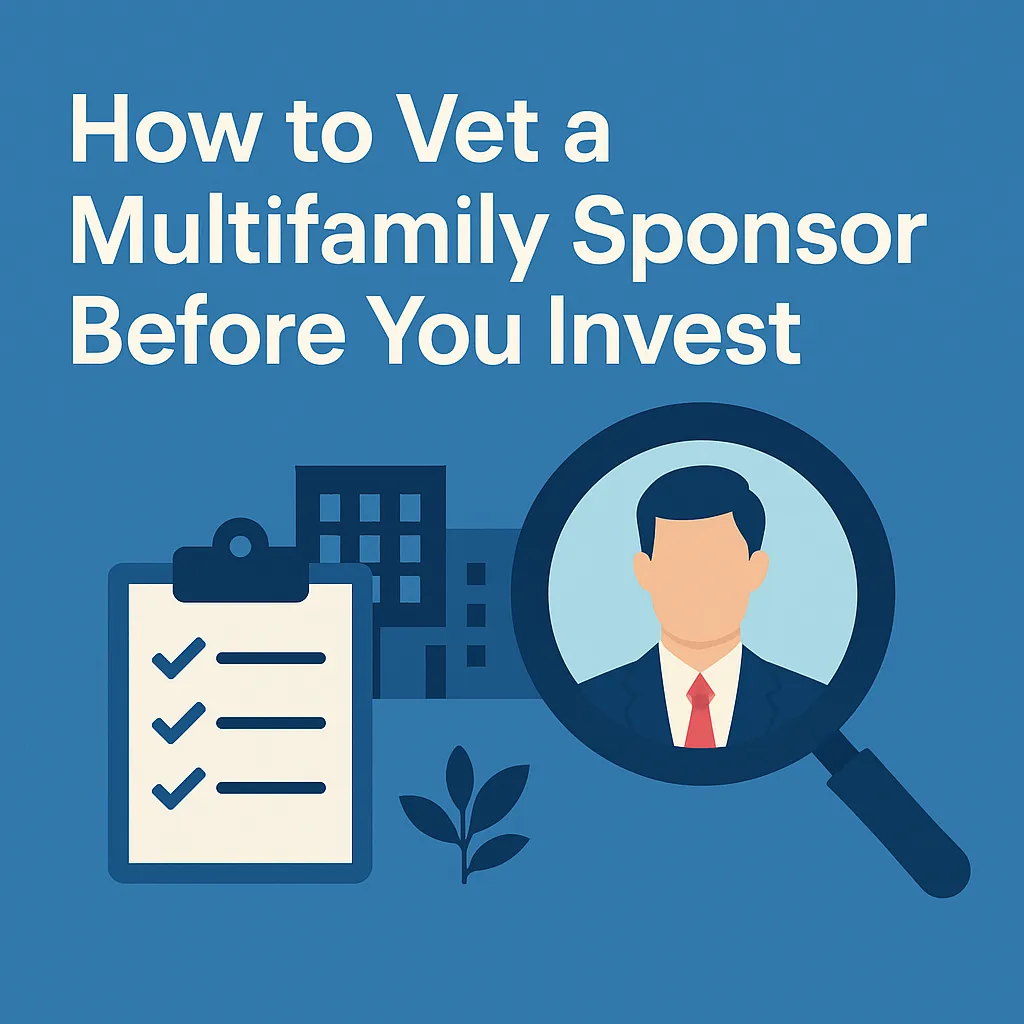
How to Vet a Multifamily Sponsor Before You Invest
How to Vet a Multifamily Sponsor Before You Invest
Before investing in any multifamily real estate deal, the most important decision you’ll make isn't about the property—it’s about the people. The sponsor, or operator, is responsible for acquiring, managing, and executing the business plan. No matter how great the location or how attractive the pro forma returns look, a bad sponsor can ruin a good deal.
In this article, we'll walk you through how to properly vet a multifamily sponsor so you can invest with confidence.
🔍 How to Understand the Sponsor’s Role
In a syndication, the sponsor is the active partner. They find the deal, line up financing, raise capital, oversee renovations, manage the property manager, and communicate with investors. You're trusting them to make decisions with your money—so it's essential to know who you're dealing with.
🧾 Review Their Track Record
Ask:
How many multifamily deals have they completed?
What asset classes, locations, and deal sizes have they worked on?
What were the results? (IRRs, equity multiples, occupancy, hold periods)
Look for experience that matches the deal you're evaluating. Someone who has only done small Class A properties in the Midwest may not be the right fit for a value-add Class C deal in Florida.
Also check for:
Past performance (real numbers, not projections)
Case studies or deal summaries
Their reputation in investor communities or forums
🗣️ Ask for References
Don’t hesitate to ask for contact info from past investors. Ask those investors:
Were you satisfied with communication?
Did distributions arrive on time?
Did the deal perform as expected—or close to it?
This feedback is invaluable. A good sponsor should have happy investors who are willing to speak up.
💰 Look for “Skin in the Game”
Find out if the sponsor is investing their own money in the deal. This aligns their interests with yours. While there’s no hard number, many experienced sponsors will contribute 5–10% of the total equity raise themselves.
No skin in the game? That’s a red flag.
📑 Evaluate Their Communication Style
From your first interaction, notice:
Are they responsive and clear?
Do they answer your questions directly?
Do they provide detailed deal summaries and webinars?
Good communication builds trust—and you’ll need it during the lifecycle of the investment.
🚩 Red Flags to Watch For
Lack of transparency or vague answers
Overpromising high returns without risk disclaimers
Inconsistent or overly complex deal structures
No past investors willing to speak with you
✅ Conclusion: Choose the Right Partner, Not Just the Right Property
Even a strong property in a growing market can go sideways with the wrong sponsor. Your due diligence should always start—and often end—with the people behind the deal.
Do your homework, ask the right questions, and invest only when you feel confident in the team.
